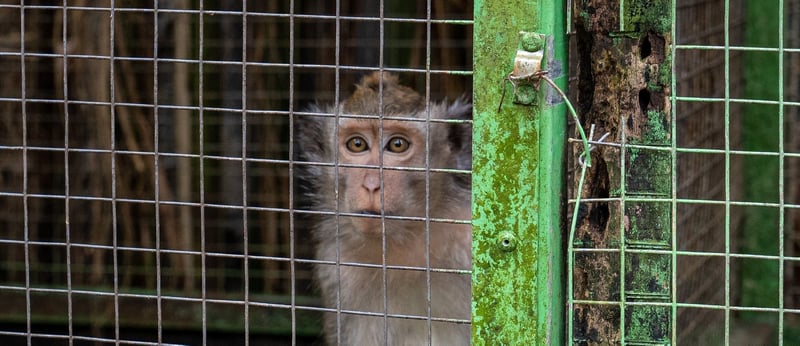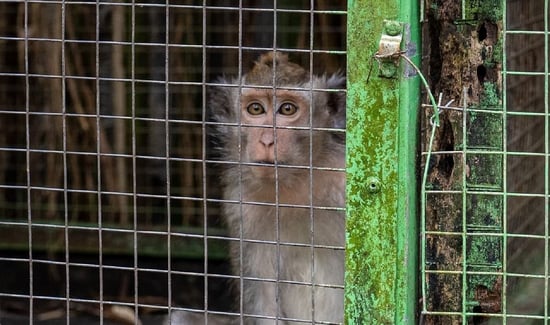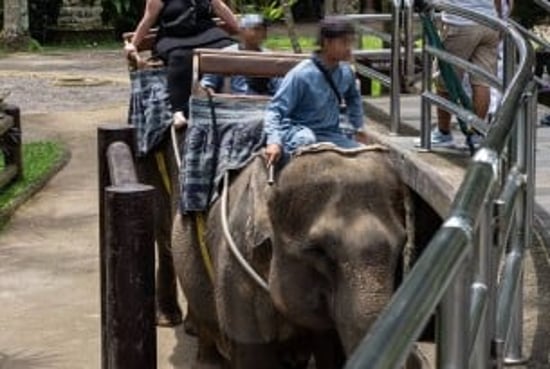
Are zoos and wildlife entertainment venues in Bali ethical?
News
If you’re wondering whether the zoos and wildlife entertainment venues in Bali offer ethical and wildlife-friendly experiences, our ‘Holidays that Harm’ report is just for you.
Image credit: World Animal Protection / Andito Wasi
Our latest report is a reinvestigation into 34 popular wildlife tourism venues across Bali and Lombok since our last report in 2018. It exposes the inadequate captive conditions that wild animals are kept in on these islands.
Wild animals used in tourist attractions are often taken from their mothers in the wild or bred in substandard conditions in these venues. They are then “tamed” for cruel activities such as elephant bathing and riding, orangutan shows and selfies, and swimming with captive dolphins, to name a few.

What makes the current wildlife tourist attractions in Bali cruel?
“What may be an island paradise for tourists is a captive hell for more than a thousand wild animals trapped in shockingly inadequate conditions across wildlife entertainment venues in Bali and Lombok.”
“People go to these venues because they love animals, but they are unaware of the hidden cruelty behind the scenes, with many animals taken from their mothers as babies and forced to endure cruel and intensive training to make them ‘safe’ to interact with tourists.”
“During our investigation we saw wild animals suffering for selfies and it’s driven by tourist demand and lack of ethical policies by travel companies.”
No ethical ways to see wildlife in Bali and Lombok
Although captivity can never meet the needs of wild animals, our assessors were shocked to discover that many of the venues fail to even meet their most basic ones. As a result, there are currently no ethical ways to witness wildlife in Bali and Lombok.
- More than 1,300 captive wild animals are currently being used as exhibits and in activities
- Elephant bathing and riding, wildlife selfies, swimming with dolphins in artificial pools, and touching turtles in small pens were among the cruellest interactions observed
- No significant improvements were found in the recorded and observed welfare conditions for wildlife in entertainment since our 2018 'Wildlife Abusement Parks’ report
- Misleading conservation claims by many venues were observed, even though captive entertainment and breeding in entertainment venues have no genuine conservation benefits
- Global travel giants including GetYourGuide, Traveloka and Trip.com continue to sell low-welfare wildlife entertainment attractions
Your choices make a difference
While there are currently no ethical ways to observe wildlife in Bali and Lombok, you can still be a part of the solution.
As a tourist, all you have to do is avoid cruel wildlife interactions and only choose travel companies with a clear and accessible animal welfare policy.
By doing this, you can help drive down the demand for captive wildlife cruelty and help put an end to the needless suffering of wild animals in the name of tourism.
Together, we can help keep wild animals in the wild – where they belong.
Holidays that harm
Read our 'Holidays that Harm' report and learn about the wildlife suffering at tourist venues in Bali and Lombok.
End elephant suffering
Call on Mason Elephant Park and Lodge to end the captive breeding of elephants and the cruel interactions for tourist entertainment.

